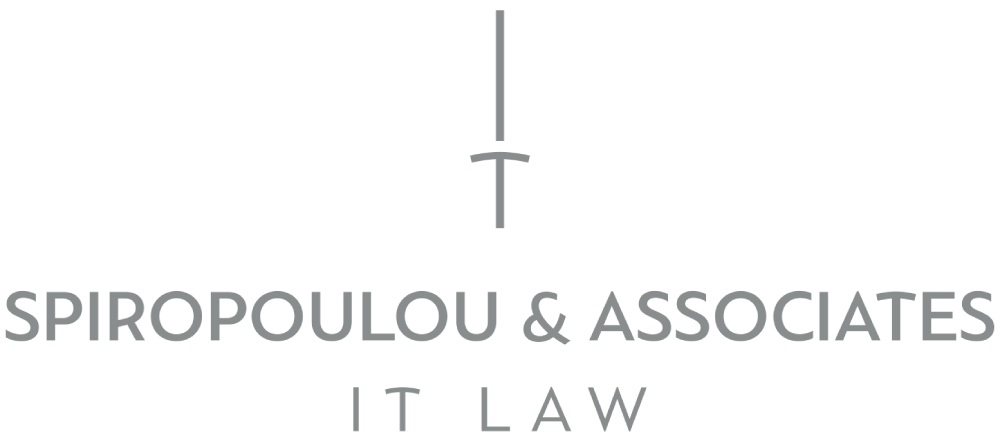Online fraud and electronic crime in the Greek Courts
Online fraud and electronic crime in the Greek Courts. By Elena Alk. Spyropoulou Attorney at law. Growing amounts of computer fraud cases appear, or in general of “electronic” and “online” crimes, before the Greek justice. How do Greek courts treat cases of online dispute? With a lot of consideration and multipage decisions. In the last years a competent jurisprudential corpus has been formed, which in cases, characteristic are the cases of domain names, offers almost a complete view on the matter. Thus we can have safe conclusions on matters that have been consistently held from the Greek justice, including: 1. The legal nature and substance of domain names. Domain names or web addresses are a new form of distinctive sign, with which a company is registered in the internet, as it is closely linked to its individuation data. This means in view of its operation, a domain name plays the role of an online distinctive title, as it consists or includes the name, the trademark, company name or its distinctive title, just as those are used in its rest and usual transactions. In other words (wording from the 4842/05 judgment of the Athens’ Multimember Court of First Instance) “a domain name is the web statement-certification of user identity in the cyberspace”. And as characteristically the aforesaid ruling states “the freedom of use of any name, no matter how famous and known it is, by any user, would cause tremendous or even irreclaimable damages to the company which is established in transactions by that exact name”. 2. Conflict of rights between beneficiaries of a domain name. According to the aforementioned ruling as well as the recent 5266/2005 judgment of the Athens’ Multimember Court of First Instance, a web address should have the respective protection that distinctive signs do, but any distinctive sign should also be protected from its imitation or fraudulent use in a web address. To solve these conflicts Greek courts take into consideration, viewing through each case’s prism, the particularity of the internet due to its global nature as a means of information, the uniqueness of web addresses, the limited ability of combination of addresses and the peculiarity of the registration system of domain names, which is under the first come first served rule. The principle of time priority is firstly taken into account, so that the right to an e-address belongs to the individual who is established first in transactions with the use of the particular domain name, or the use of its dominant words in his distinctive title. However Greek courts also grant rights to the individual who uses a specific domain name, which characterizes his company, even if his second to the one who uses the same title in transactions, only if the kind of their business is essentially different, so that there is no misleading of consumers regarding a supposed connection or co-identity of the two companies. 3. Until when can one claim his rights on a domain name. This point is of particular importance, as, like it is known, in some cases the law establishes a shorter time of limitation of rights than the usual five years. This happens when the goods that are being protected by these provisions, are regarded by the legislator as of lesser importance than the need for safety in transactions. And the disputes that arise from the use of a domain name fall under the category of a six-month limitation. Consequently any dispute from the use of a domain name must be litigated within six months from the moment that the proprietor becomes aware of the fraudulent use. We must indeed highlight that, because trial dates up to Greek courts are set distant in time – sometimes longer than a year from the filing of the complaint – the diligence that the proprietor of the domain name must show is great, as six months may pass between filing and hearing. Thus the aforementioned 4842/05 judgment of the Athens’ Multimember Court of First Instance decided where the complaint was overruled without examining the essence of it, as the period of the six months of limitation had passed until it reached the court’s hearing. 4. But what constitutes use of a domain name? At last this matter was judged by justice, as the HTPC’s Regulation on Management and Assignment of .gr Domain Names, before its amendment, provided in article 6 §1 that a domain name is definitely deleted by HTPC’s decision and after third party’s complaint, if it is not used in the Internet for two consecutive years. This provision had given cause to various aspiring new proprietors to appeal to HTPC, as well as courts, asking for the deletion of domain names they were interested in, claiming that those where inactive, as they didn’t appear to have any kind of change in the website they showed for two consecutive years. However, the recent 5266/2005 judgment of the Athens’ Multimember Court of First Instance decided that a seemingly unaltered first page of a website, doesn’t imply at all that the website is inactive, as in subfolders of it, non-visible to the visitor of the page, it is proved (by adduced logs’ copies) that the source code of the website has been modified. Furthermore, use is also the connection of a website via a link that connects the website with the e-mail of the proprietor. Besides HTPC acted wisely by amending the Regulation and removing the provision in question, and now non use of a domain name doesn’t justify as cause for deletion. Published at: Financial RAM
